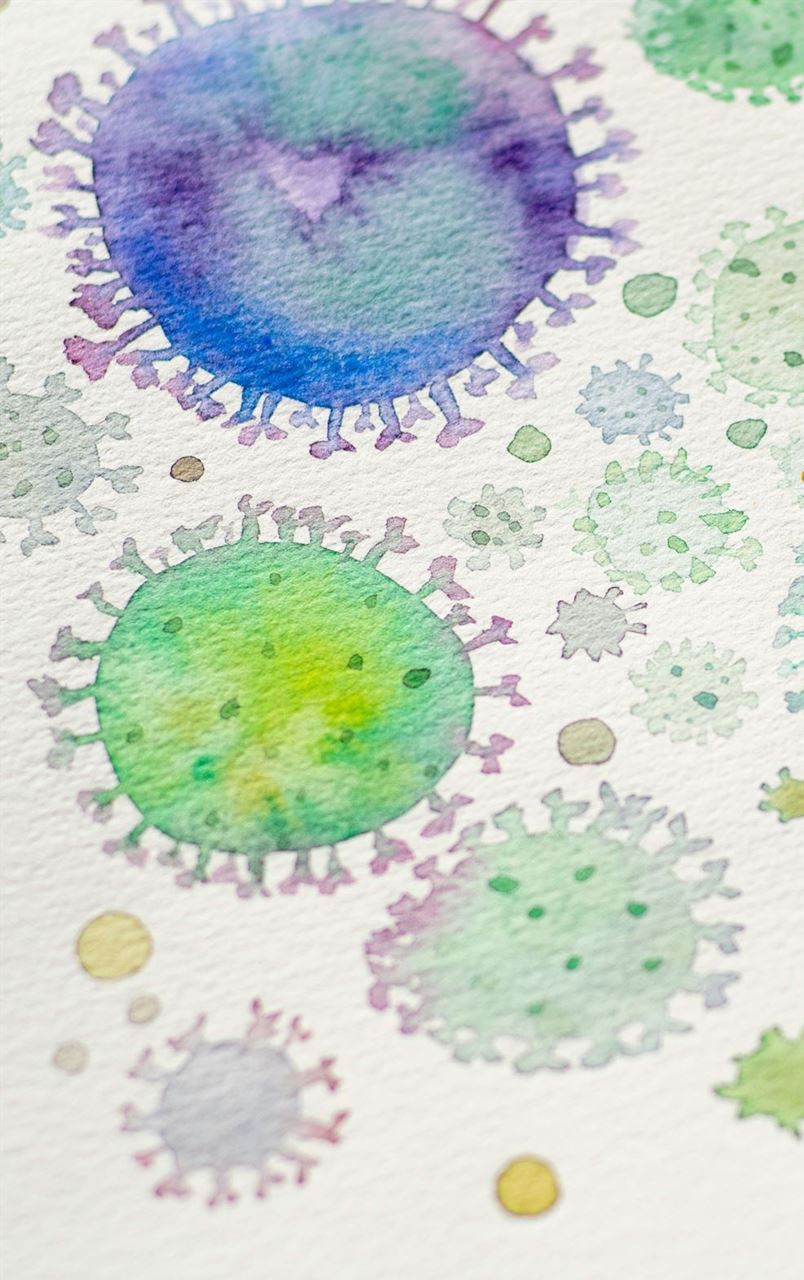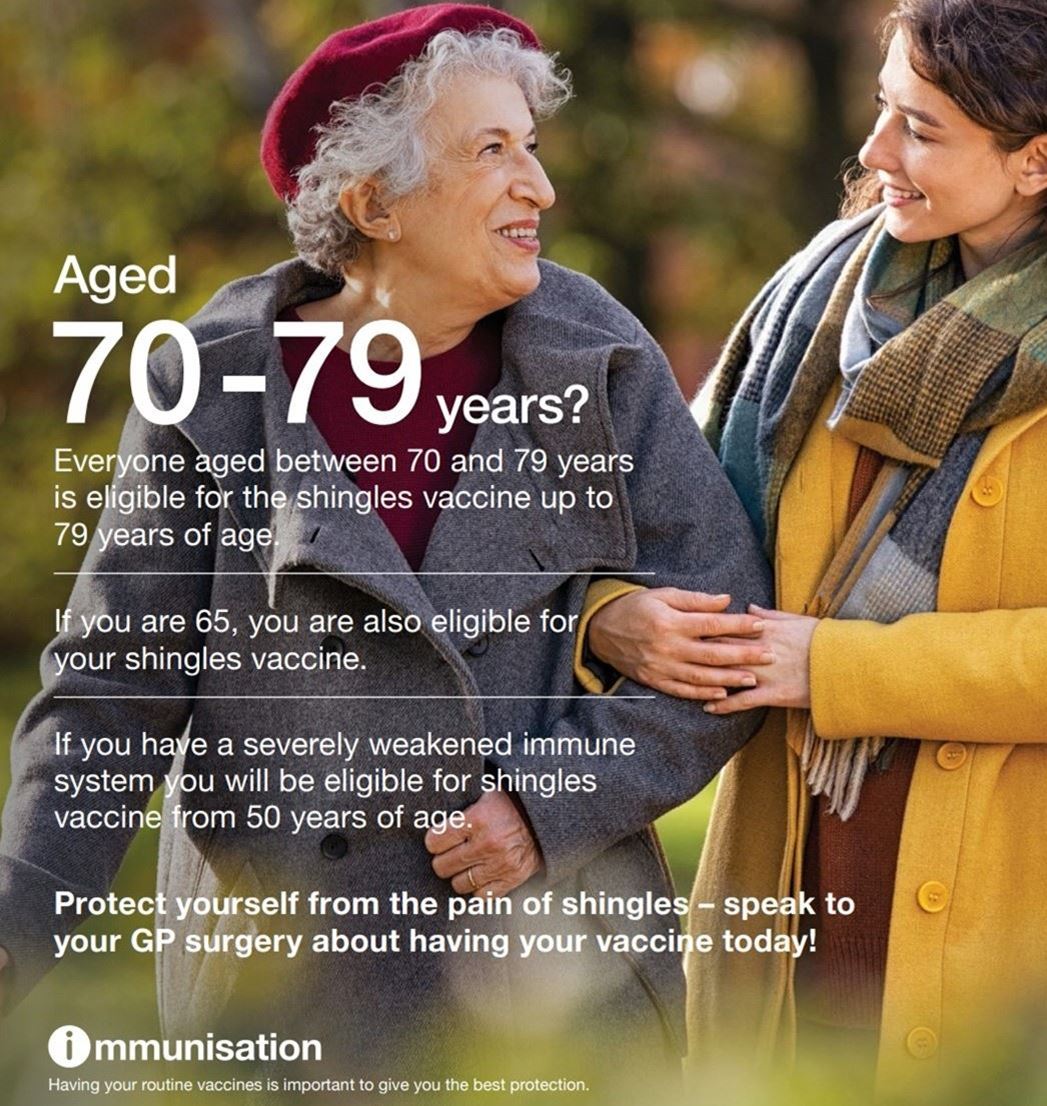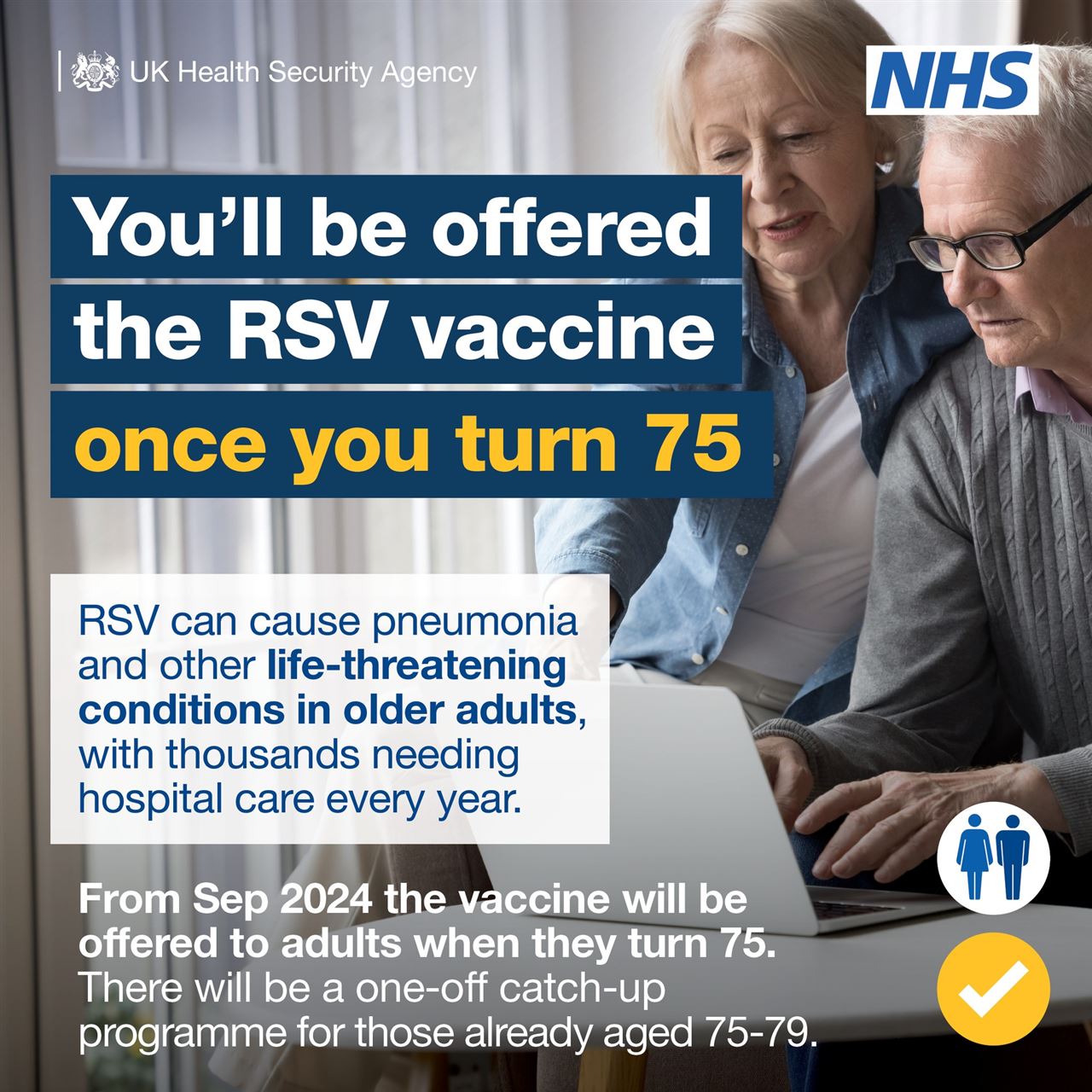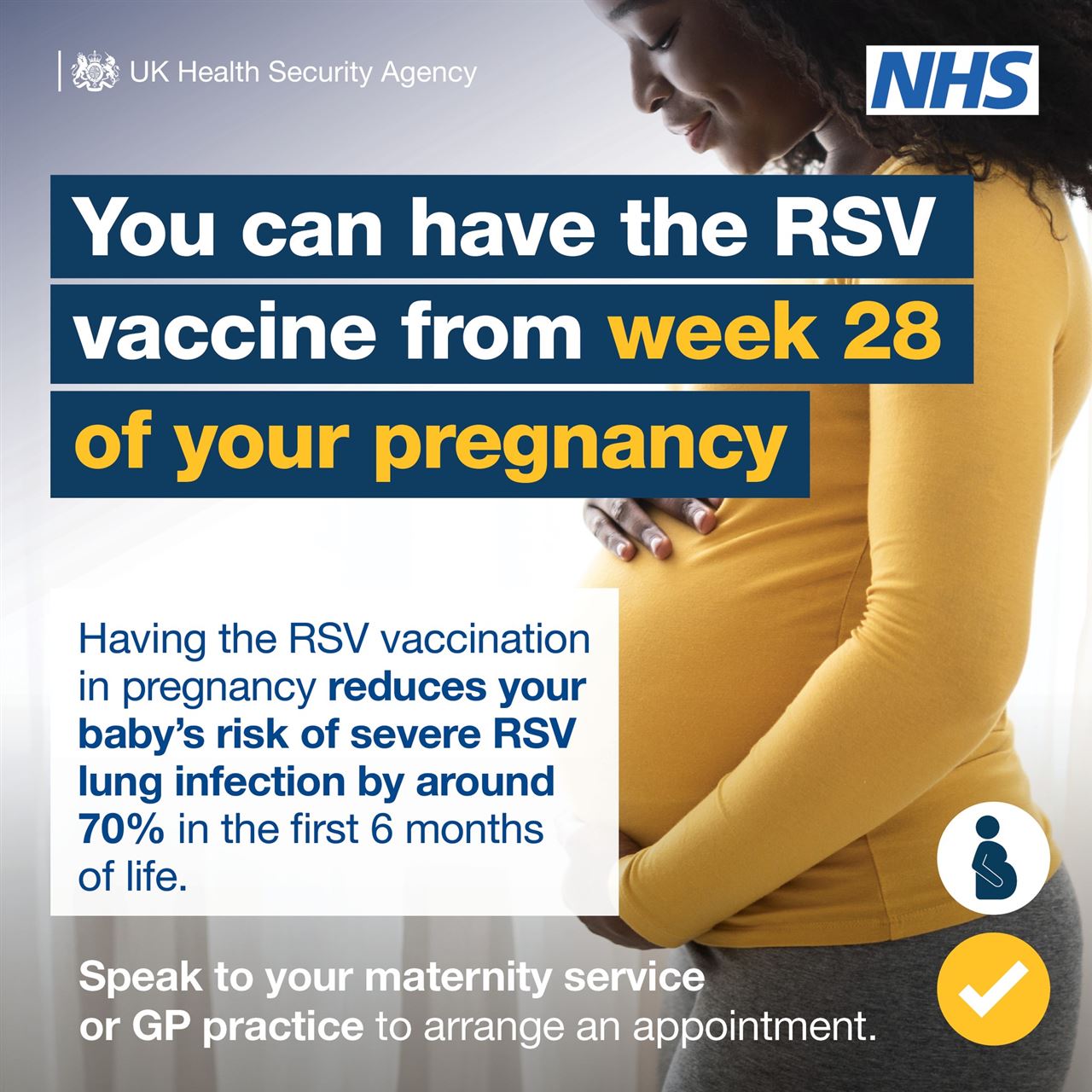Vaccination Information
Autumn/Winter 2025 Vaccination Programme - updated 18th November 2025
Lyme Bay Medical Practice Flu and COVID Vaccination Clinic Information
Our Saturday Flu and COVID vaccination clinics have now been completed. A huge thank you to everyone who attended and for the continued support you’ve shown to our surgery — it really means a lot to the whole team.
If you haven’t yet received your vaccination, please don’t worry. You can still contact the surgery, and we’ll arrange an appointment for you in one of our smaller ongoing clinics with our practice nurses.
Thank you again for your patience, understanding, and support as we work together to keep our community healthy.
Key Change to COVID vaccine eligibility this season:
The eligibility for COVID-19 vaccination has narrowed to focus on those at the highest risk of serious illness.Patient Information: Know your Vaccines

Winter vaccinations
The NHS encourages eligible groups—such as older adults, pregnant women, young children, those with certain health conditions and carers—to get vaccinated as early as possible in the season.
Winter flu
Influenza (flu) vaccination is important because, while flu is unpleasant for most people, it can be dangerous and even life-threatening for some, particularly those with certain health conditions. Getting vaccinated helps protect individuals from flu and relieves the pressure on the NHS and social care services.
In the UK, the flu vaccination season typically starts in September and runs until March, with the main push for vaccinations occurring between September and early December. This ensures people are protected before flu activity peaks, usually between December and March.
COVID
Viruses change, and protection fades over time. The COVID-19 vaccine helps protect against COVID-19 virus, which can be a serious or life-threatening illness. People at increased risk of getting seriously ill from COVID-19 are invited to receive the vaccine, which the NHS usually offers in spring and early winter.
Getting the COVID vaccine can help reduce your risk of getting severe symptoms and help you recover more quickly if you catch COVID. It protects against different types of the COVID virus and can help reduce your risk of being hospitalised if you become infected.
Our Other Vaccination Services

Pneumococcal vaccine for over 65s
Protection against serious and potentially fatal pneumococcal infections.
A pneumococcal infection can affect anyone. But some people such as adults aged 65 or over are at higher risk of serious illness.
The pneumococcal vaccine protects against serious and potentially fatal pneumococcal infections. It's also known as the pneumonia vaccine.
Pneumococcal infections are caused by the bacterium Streptococcus pneumoniae and can lead to pneumonia, blood poisoning (sepsis) and meningitis.
People aged 65 and over only need a single pneumococcal vaccination. This vaccine is not given annually like the flu jab. For more information visit the Pneumococcal vaccine overview page on the NHS website:>>
Shingles Vaccinations
The Shingles vaccine helps protect you from shingles, a common, painful skin disease.
From the 1st of September 2023, eligibility for a free NHS Shingles vaccine changed. Previously, you could only have the shingles vaccine between the ages of 70 and 79. However anyone turning 65 on or after the 1st of September 2023 is able to get the vaccine after their birthday.
Please note that if you have your 65th birthday before the 1st of September 2023, you will have to wait until you are 70 to become eligible. Eligibility will then be expanded to include everyone aged 60 and over by September 2033.
From September 2023, the shingles vaccine has also been made available to those aged 50 or over with a severely weakened immune system. Immunocompromised individuals who have already received 2 doses of their Shingles Vaccine do not need re-vaccination.
You do not need to get in touch with us to request a shingles vaccine as patients are contacted when they become eligible. However if you are eligible and think you may have missed your vaccine, please contact us>>
The shingles vaccine is given as a single injection into the upper arm. Unlike the flu jab, you’ll only need to have the vaccination once, and you can have it at any time of the year.

Further information on shingles vaccinations
Vaccination against Measles, Mumps and Rubella (MMR)
The MMR vaccine is a safe and effective combined vaccine.
It protects against 3 serious illnesses:
These highly infectious conditions can easily spread between unvaccinated people. In particular, measles is one of the world’s most infectious diseases with estimates showing that one infected adult or child can pass the disease onto around 15 other unvaccinated people.
Getting vaccinated is important, as these conditions can also lead to serious problems including meningitis, hearing loss and problems during pregnancy.
2 doses of the MMR vaccine provide the best protection against measles, mumps and rubella.
Respiratory Syncytial Virus (RSV) Vaccinations
The RSV vaccine helps protect against respiratory syncytial virus (RSV), a common virus that can make babies and older adults seriously ill. It's recommended during pregnancy and for adults aged 75 to 79.
What does the RSV vaccine do?
The RSV vaccine helps protect against respiratory syncytial virus (RSV).
RSV is a common cause of coughs and colds. Most people get it several times during their life.
It usually gets better by itself, but in some people (especially babies and older adults) it can cause illnesses such as:
- pneumonia (a lung infection)
- bronchiolitis (a chest infection that affects babies)
These illnesses can cause serious breathing problems. They may need to be treated in hospital and can be life-threatening.
Getting RSV can also make your symptoms worse if you have a lung condition, such as chronic obstructive pulmonary disorder (COPD).
The RSV vaccine helps reduce the risk of serious breathing problems like pneumonia and bronchiolitis.
Who should have the RSV vaccine?
The RSV vaccine is recommended if:
- you're pregnant – the vaccine is recommended during every pregnancy (from 28 weeks onwards) to help protect your baby after they're born
- you're aged 75 to 79
Find out more about the RSV vaccine on the NHS website here>>


Men ACWY Vaccination
A rare but life-threatening disease caused by meningococcal bacteria.
Meningococcal disease (meningitis and septicaemia) is a rare but life-threatening disease caused by meningococcal bacteria.
Older teenagers and new university students are at higher risk of infection because many of them mix closely with lots of new people, some of whom may unknowingly carry the meningococcal bacteria at the back of their nose and throat.
"Fresher" students going to university for the first time should make sure they've had the MenACWY vaccine to prevent meningitis and septicaemia, which can be deadly. The MenACWY vaccine is also routinely offered to teenagers in school Years 9 and 10.
Anyone born on or after 1 September 1996 who was eligible but missed their teenage MenACWY vaccine can still have the vaccine up to their 25th birthday. For more information visit the MenACWY vaccine overview page on the NHS website:>>.
Childhood Immunisation
Childhood immunisation is an important aspect of your child's healthcare. For information on routine childhood immunisation, please visit our Children's Health page by following this link:>>
Page created: 30 March 2021